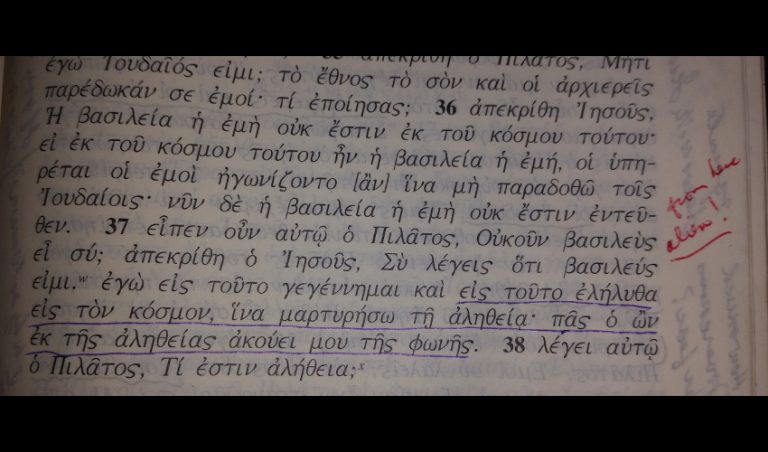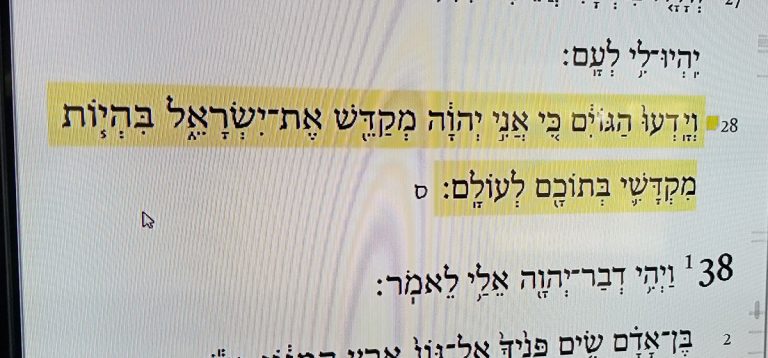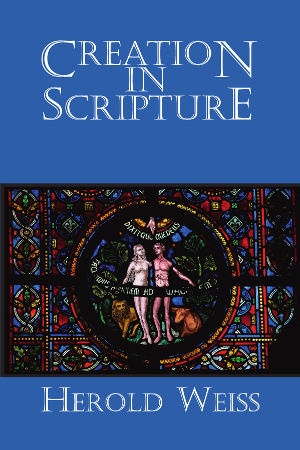Psalm 119:128 – All
Therefore I completely keep all your precepts.
I hate every false way.
I think I say something about how many ways one could go in meditating on each of these verses, and I certainly could. Today I’m thinking about this line especially from a Christian perspective.
I recall a young man coming to my door with his wife and his KJV Bible in hand, intending to convert me. It did not bother him that I was already a Christian. It was his duty to straighten out my theology in a hurry. Among the various things he told me was that the Sermon on the Mount did not apply to Christians in the “church age.” It was for the Jews and for a special transitional stage between the old covenant and the new covenant.
Our discussion roamed through the New Testament. Passages from Hebrew Scriptures were not of importance to him. I think we spent more than an hour not communicating with one another.
As he got up to leave he said he was worried about my salvation. “I have given you nothing but Scripture but you haven’t given me any scripture at all.” He paused. “Well, except for Matthew, and Hebrews, and James, and they don’t count.”
Now when I read the Sermon on the Mount as recorded in Matthew, I find sentiments that fit with this passage. Not only is Jesus saying to keep all the law all the time, but he’s asking us to keep the law in our hearts. If one is angry at someone that person is guilty of murder.
I can see why someone would want to dismiss the whole thing as applying to someone else. Big sigh of relief! It sounds pretty holy, but I don’t have to do any of it.
We often talk and act as though the big problem with Israel was that they had too many laws or that they were too intent on keeping them. That misses the point that God gave Israel all those laws. God said they should keep all those laws. Leviticus (19:2 and other places) says to “be holy for I (the LORD) am holy.” Matthew 5 doesn’t back off from this, saying that unless your righteousness exceeds that of the scribes and Pharisees, you will not enter the kingdom of heaven, and then in 5:48 “Be perfect, as your heavenly father is perfect.”
Old Testament or new, there is nowhere in scripture where God’s plan is not a plan to create a holy people. The thing we need to catch on to, and bluntly, that I think the psalmist has 100% is this: God’s call is for completely keeping all the commandments, while at the same time, he recognizes in many other verses that it is only through God’s power that this is accomplished.
I’m again going to refer to the last verse, sort of a spoiler! “I have gone astray like a lost sheep. Seek your servant….” Note that it does not say, “I have gone astray like a lost sheep. Your laws are too tough, give me an excuse.” He does not say, “I have gone astray, please fix the map so it records that I am on course.
There is a glorious purpose to which God calls us all, and to which only God can bring us. We can’t attain this, but God can. And God promises to do precisely that.
Keep your eye on the goal. All * Completely.





There is a comment in an epistle some:where that talks about failing in one aspect of the law and therefore failing in all. (not Paul actually) There is something odd about this nonetheless. I don’t know why it no longer troubles me. I don’t consider James as straw. The KJV is likest Shakespeare here: “For he shall have judgment without mercy, that hath shewed no mercy; and mercy rejoiceth against judgment.” There’s the point of the Psalms – we seek a people who know how to exercise mercy. And we are to build it here and now – because it is all the time and space we have. We do not build by condemnation. I use ‘we’ since it is good for corporations, churches, and governments of all types to learn to exercise such kindness.
(See also merchant of Venice act 4 scene 1 – where the disguised Portia delivers the great speech on mercy. Via ChatGPT: This scene is pivotal, encapsulating themes of justice versus mercy, the letter versus the spirit of the law, and the complexities of human emotion and prejudice. Portia’s intervention not only saves Antonio but also challenges the rigidity of legalism, advocating for compassion within the framework of justice.)
I think you make a number of good points, but I do think there’s a value of the 1 + 1 = 1 mix, by which I mean we keep the full demands of the law, without blunting or bypassing while at the same time recognize that we’re always going to be going astray. It seems to me that the Psalmist puts those two elements together all through the tapestry that is this wonderful work of art.
Your comment also reminded me of what a Navy veteran friend of mine called “malicious obedience.” That is, you could get so busy following the letter, that you gummed up the works. Not sure precisely how that relates, but it seems at least a warning against legalism of a certain variety.